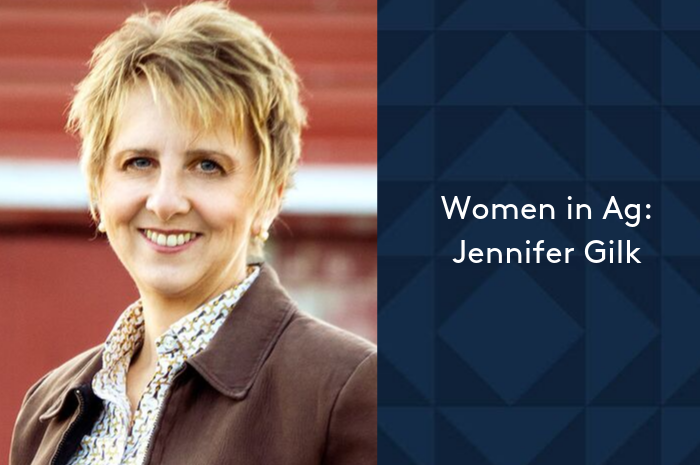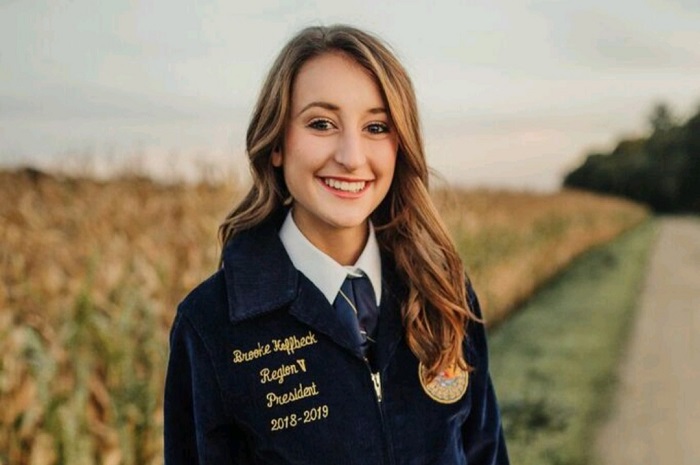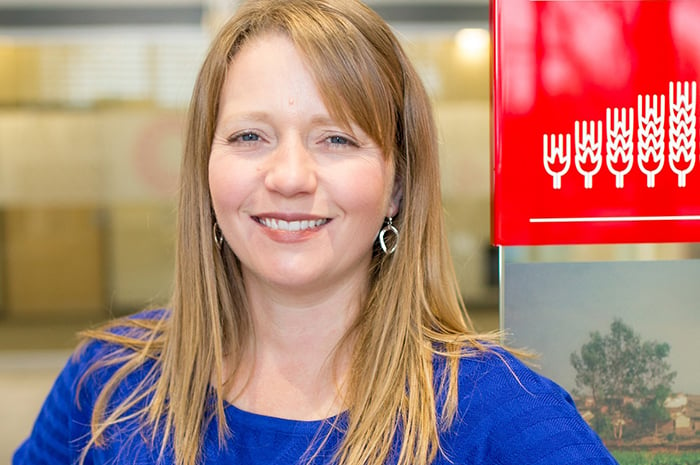
It’s a familiar story often told in rural areas, including outstate Minnesota. The kids grow up, they leave and pursue their careers in the big city, leaving behind what experts call a “brain drain.”
But there’s an attorney in Redwood Falls, Minnesota, who has a strong opinion about this. Jennifer Gilk, who specializes in succession and estate planning for farmers, is passionate about this topic, and continues to be an advocate for rural communities today.
But she comes by her opinion honestly, because she was once faced with this choice herself: ag community or big, glittery city?
Growing up on the family dairy farm near Tyler, Minnesota, Gilk saw firsthand how her parents and neighbors managed through the farm crisis of the 1980s. It was an eye-opener, showing her how quickly things can change, even on a seemingly unchanging family farm. How the perfect storm of falling commodity prices and high debt could make a decades-old family business collapse and float away.
You might say witnessing this struggle up close formed Gilk’s life purpose. Instead of escaping ag life, she chose to make a living in a rural community, working to preserve a way that’s unique to farm families. So in 1993, with her law degree from Drake University in hand, she moved with her husband to Redwood Falls, where she’s practiced law since. Then in 2016, after more than 20 years as a partner at a firm, she opened a firm of her own that focuses on her specialty: estate and succession planning for farmers.
Not only is her work impactful, but she also finds working in a small-town environment offers a different level of career satisfaction one may not always reach in an urban area. That’s something the young, ambitious people itching to leave may not realize.
“The average lawyer in the Cities puts in an extreme amount of hours (as a young associate), and they don’t get to do the complexity of work we do out here,” she says. “Farm businesses are complex, highly sophisticated, high-worth businesses. … It is intellectually stimulating, and it’s high stakes work.”
For those who are “remotely entrepreneurial,” the possibilities in an agricultural community are “limitless,” she says. Baby boomers are retiring, leaving many job openings for a wide range of professionals, from auto mechanics to certified public accountants. Rural communities offer a unique opportunity to build your network. She knows just about all the CPA's, attorneys and other professionals within a 50-mile radius and the quality of work they do, and they know her.
“There’s a higher degree of civility out here than in bigger metro areas,” she says. “We have to live together, and we have clients in common.”
What farmers need to know about succession planning
When it comes to preserving the farm as a way of life, succession planning is a critical step. Because farms are complex business entities, transferring the operation to the next generation is no small task. Among the many considerations, there are estate tax and real estate tax laws, various business entity structures, keeping cash flow in balance, managing debt, and income tax consequences, all at the same time.
Yet all too many farming families postpone succession planning because they don’t want to deal with it. According to Gilk, some 85% of farms lack a succession plan. Of the 15% that do have one, it’s probably out of date.
“A lot of people are scared of it,” she says. “They say they haven’t made the appointment because they don’t know what to do. But if you’re really sick, do you figure out what the doctor should do before you go in? No, you don’t. It’s not going to be finished in one meeting. You’re going home with homework, you’ll have some tough decisions, and we get there eventually. At the end of the day, succession planning is only 25% as painful as you’ve built it up in your mind.”
She tells her clients once they develop the succession plan, it needs reviewing and revising every 4-6 years. That’s because as children grow up, marry and start living their adult lives, the plans they made in young adulthood can change, sending life in different directions.
“You see who they become as people,” she says. “You see how they handle money. You see if they come back. You see how they work on the farm or don’t work on the farm,” she says. "You should be updating and reviewing your plan as those transition points happen. And sometimes, things don’t happen the way you thought they’d happen.”
And speaking of the kids, that brings up another layer of complexity: family communication. Gilk encourages her clients to sit down with their families and discuss the plans. Because when it comes to succession planning, fair does not mean equal. When it’s a situation where a farm operation is being transferred to a sibling who has stayed and worked the farm, hard feelings will crop up. The siblings who were not involved in the farming operation don’t come in seeing the full reality, she says. They don’t always recognize how the sibling who stayed behind and worked the farm contributed to the farm’s success. Instead of seeing the work and sacrifice, they see the wealth and what their fair share should look like.
“If anyone is upset, I want them to be upset with mom and dad,” she said. “Most of the time, the farming sibling didn’t do anything wrong. They just put their head down like a draft horse, took on the yoke and pulled it forward.”
The future of women in ag
National trends point to more women taking larger roles on the family farm. In the 2018 Census of Agriculture, 36% of producers are female, and 56% of operations have at least one female farmer.
As Gilk's clients plan for the future, she confirms this trend is also showing up in Redwood Falls.
“All along, women have worked hard on the farm,” she says. “One of the changes I’m seeing is more daughters are interested in coming back and being the real, full, true financial partner — not simply a daughter who marries a farmer. They look at farming and say, ‘Well, why couldn’t I do that?’ I don’t think that was always the attitude of farmers. That’s a distinct change in attitude.”
Farming is less demanding physically than it once was. “You literally had to have a lot of physical strength to do the task,” she says. “But we’re not working with draft horses anymore. Mechanization has helped a lot.”
But you can’t discount the effects of the equality movement. Gilk conjures the women who came before the growing ranks of female farmers, those who took on roles as managers, leaders and top professionals in their fields. The fact that more women are now choosing agriculture is “where we always wanted to get to.”
“There’s no reason women can’t run an operation,” she says. “They’re smart enough, they’re strong enough.”


